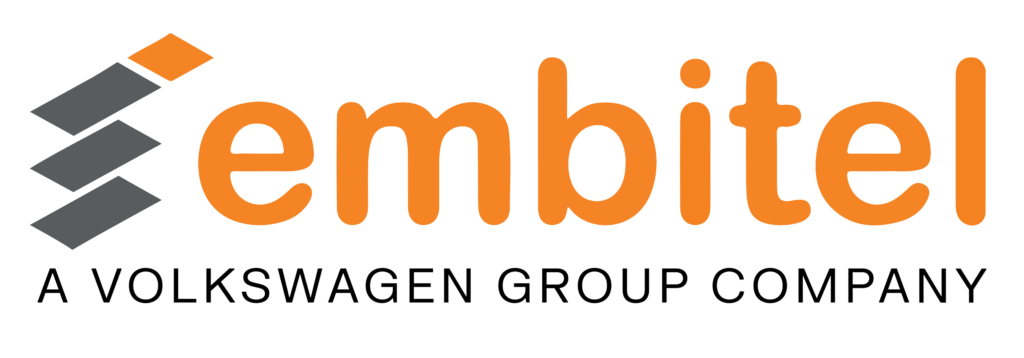Almost at the close of 2016, we have witnessed some amazing breakthroughs in the automotive sector, especially from some exciting startups based in the US.
In this post, we highlight their automotive technology innovations and success.
The seven US companies we have chosen for this list have to be commended not just for the products they create, but also for their creativity and boldness to innovate in such a demanding automotive technology industry.
Though there are hundreds of teams doing groundbreaking work across the various technologies in automobiles, we have shortlisted these US based start-ups for their contributions to autonomous driving, vehicle monitoring and diagnostics.
Quanergy Systems
This Silicon Valley startup is making its mark in Light Detection and Ranging (LiDAR) sensors – a key component in self-driving cars.
It says its LiDAR sensors are more accurate, powerful, reliable and cost-effective than any other currently available in the market.
 |
(Source – Quanergy Systems website)
Self-driving cars depend on inputs from various sensors, including LiDAR systems, to monitor their position on the road and measure their relative distance from other objects.
Quanergysays it has invented a version of the LiDAR system that costs $100 – which is one-thousandth the average market price of LiDAR systems.
The startup has raised $90 million from investors so far, which hints at the growing interest in autonomous vehicle technology.
According to CEO Louay Eldada, they have investments from Delphi Automotive and Samsung Ventures, among others – which bring their total funding to about $150 million.
Quanergy’s LiDAR systems are being used by five automakers developing autonomous vehicles, and consumers can expect to buy a vehicle equipped with this technology sometime in 2018, according to Eldada.
TriLumina
Born of the Sandia National Laboratories in New Mexico, TriLumina Corp specializes in VCSEL emitters and a range of products for LiDAR, including eye-safe semiconductor laser illuminators – said to be among the most versatile – for solid-state LiDAR systems.
 |
(Source – TriLumina website)
Their recent appointment of Brian Wong, who is an experienced leader and highly respected in the semiconductor industry, as the new President and CEO follows news about a major investment by automotive bigwigs Denso last month.
With investments from Denso and industry big-hitter Caterpillar, TriLumina has raised $9.2 million in funding.
Other key personnel at TriLumina include director of technology Mial Warren, who previously managed the photonics research group at Sandia, and director of product quality Rich Carson, who worked on VCSEL technology.
Driversiti
Driversiti, is a creative startup that aims at simplifying driver-behavior and tracking by using smartphones to collect real-time data.
Its cloud-based platform collects information on vehicle position, highway congestion, road and weather conditions, collision notifications, and driver distraction.
Sascha Simon, CEO of Driversiti, founded the startup in 2012. Driversitiis is based in Hoboken, New Jersey, US.
 |
(Source – Driversiti website)
Sascha’s experience in telematics inspired him to harness technological advances to minimize inefficiencies and dangers of modern travel. According to him, “Driversiti primarily enables smartphones to replace connected vehicle devices to turn them into ‘Situationally Aware’ nodes that create an Internet of Moving Things. It eliminates the need to have expensive connected boxes in cars by allowing the devices themselves to form an ad-hoc network for vehicle-to-vehicle and vehicle-to-infrastructure communication.”
HAAS Alert
HAAS Alert, founded by former HERE product manager Cory Hohs, is a startup in Chicago, USA.
HAAS Alert is an app that alerts drivers when emergency vehicles like fire trucks and ambulances are approaching. Working in conjunction with In-Vehicle Infotainment standards like Apple Car Play and Android Auto, HAAS (Heedful Audio Alert System) sends an audible warning and push notification to the driver.
HAAS’s main objective is to facilitate the easy passage of emergency vehicles through busy roads. Drivers are often not aware of an approaching emergency vehicle as cars are well insulated from external noises, along with other factors like loud music, and driver distraction due to infotainment systems.
 |
(Source – HAAS Alert website)
HAAS Alerts are being tested in Chicago fire trucks. The system also works with connected headphones, and smart helmets via Bluetooth, which interrupts playing audio and sends voice alerts about approaching emergency vehicles.
Recently HAAS Alerts participated in Techstars Mobility, a transportation tech-focused accelerator sponsored by Ford, and went on to be chosen to work with Ford.
Capio
Founded in Silicon Valley at Carnegie Mellon University’s Speech@SV by Dr. Ian Lane, a leading authority in speech recognition, Capio is developing high-tech natural language processing technologies that are redefining human computer interaction.
It delivers an unmatched combination of speed and accuracy for speech recognition, resulting in a human-like conversational interface that connects with devices of all types.
 |
(Source – Capio Website)
Capio’s voice-recognition technology, contained on a single chip, provides high-quality results without the need for an Internet connection. Using pattern recognition, its algorithms can identify extraneous background noises and learn to ignore them.
Capio says it can embed its chip into any existing vehicle and will begin delivering to a major automotive supplier later this year.
Otto
Otto is a technology startup HQ in San Francisco,USA
With a mission to rethink transportation, Otto has just last month successfully completed the world’s first shipment by a self-driving truck.
This laudable feat was achieved in partnership with Anheuser-Busch and the State of Colorado, with a truck fitted with cameras, RADAR and LiDAR sensors.
Otto’s systems controlled the acceleration, braking, and steering of the truck throughout its 120-mile journey without any human intervention.
 |
(Source – The Verge)
With an Otto-equipped vehicle, truck drivers will now have the opportunity to rest during long stretches of highway while the truck continues to drive and make money for them.
As of last month, Uber acquired Otto for $680 million, thus making them one of the strongest autonomous engineering groups in the world.
PolySync
This Portland, Oregon-based US automotive technology startup founded in 2013, has developed a middleware platform that lets automakers and other autonomous vehicle startups test, gather data, and eventually deploy driverless vehicle application.
The founders of PolySync saw an opportunity to develop a solution when they realized their customers were spending excessive time and resources building back-end infrastructure software for their Internet-connected, autonomous vehicle systems.
 |
(Source – PolySync website)
Polysync was launched to eliminate that inefficiency with an automotive software platform that manufacturers can deploy out-of-the-box to control their device sensors, communications, and control systems.
This fall, PolySync is joining TechLab at Mcity, a business incubator at the University of Michiganin United States (US), to test and develop its driverless vehicle technology.
Earlier this year, three cars were running PolySync’s platform at the world’s first autonomous car track day at Thunderhill Raceway Park in California.
A recent exciting development from PolySync is the launch of an Arduino-based open source kit to help individuals delve into the world of autonomous vehicles.
Elio Motors
Paul Elio founded Elio Motors in 2009 with headquarters in Phoenix, Arizona. The Elio P4 (now under mass production) is a three wheeled economic vehicle with less fuel consumption and mileage of 84 mpg.
It is equipped with modern body electronics such as power window and power door lock system. The vehicle is also installed with safety systems like anti-lock brakes, traction control, and advanced cruise control.
In 2016 Los Angeles Auto show, Elio announced to launch P5 by the end of 2017. With its promising highly aerodynamic body and tires specially made by Continental to reduce drag, this new prototype has all the features of P4 and more.
It is interesting to observe that all the Elio prototypes are three-wheeler vehicles. This is because, Paul had a vision of creating cars that are in compliance with the motorcycle standards of the U.S. government.
 |
(Source – Inhabit )
Sober Steering
Sober steering was founded with a vision for social entrepreneurship along technological innovation.
The company was founded by a father-daughter duo Catherine Carroll (CEO) and John Carroll (CTO) with a mission to save lives that are lost due to drink and drive accidents.
With steering wheel installed with the Biosensors, the detection system is devised to detect the alcohol traces from the palm of the driver.
If the alcohol is detected above a certain threshold limit, this system will lead to immobilization of the vehicle. This touch based sensor diagnostic system is known as Zero Tolerance system.
It has already been launched for fleet vehicles such as trucks and construction equipment. The passenger vehicle version will be soon in the market.
 |
(Source – Inhabit )


